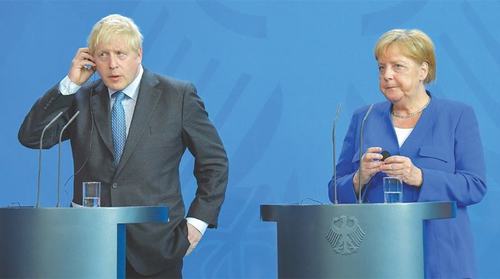Iran's foreign minister said on Thursday that three European states had succumbed to US threats of new tariffs on their goods when they triggered a dispute mechanism in a nuclear pact, a step that could lead to the reimposition of United Nations sanctions.
The 2015 nuclear deal signed in Vienna — known as The Joint Comprehensive Plan of Action (JCPoA) — has a provision that allows a party to claim significant non-compliance by another party before a joint commission.
US President Donald Trump withdrew from the deal in 2018 and imposed stringent sanctions on Iran, telling Tehran he wanted a new broader deal on nuclear and other issues. Iran had intensified activities to enrich uranium, in response to Trump’s pulling out of the deal.
“Appeasement confirmed. E3 sold out remnants of #JCPoA to avoid new Trump tariffs. It won't work my friends. You only whet his appetite. Remember your high school bully?” Iranian Foreign Minister Mohammad Javad Zarif wrote on Twitter.
The Washington Post reported on Wednesday that the Trump administration had threatened to impose a 25 per cent tariff on European automobile imports if Britain, France and Germany did not formally accuse Iran of breaking the nuclear deal.
Britan, France and Germany begin dispute process
Three EU countries on Tuesday launched a process charging Iran with failing to observe the terms of the 2015 deal curtailing its nuclear programme, a move that sparked anger and threats from Tehran at a time of intensifying tensions.
Britain, France and Germany insisted they remained committed to the agreement, which has already been severely tested by the US exit from the accord in 2018.
But even as their statement was released, British Prime Minister Boris Johnson indicated he might prefer a comprehensive accord negotiated with US President Donald Trump instead of the 2015 deal.
The decision to begin the so-called dispute mechanism process comes as tensions soar between the West and Iran following the killing of top commander Qassem Soleimani in a US strike, and the admission by Tehran days later that it had accidentally shot down a Ukrainian airliner.
The foreign ministers of the three European nations said Iran had been progressively scaling back its commitments under the deal since May last year.
“We have therefore been left with no choice, given Iran’s actions,” to begin the dispute process, their statement said.
















































